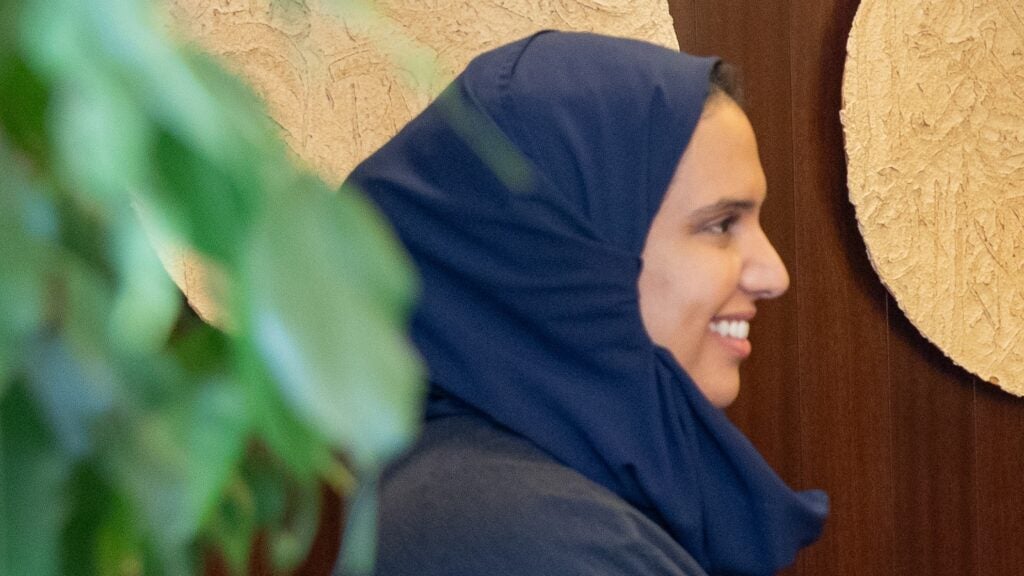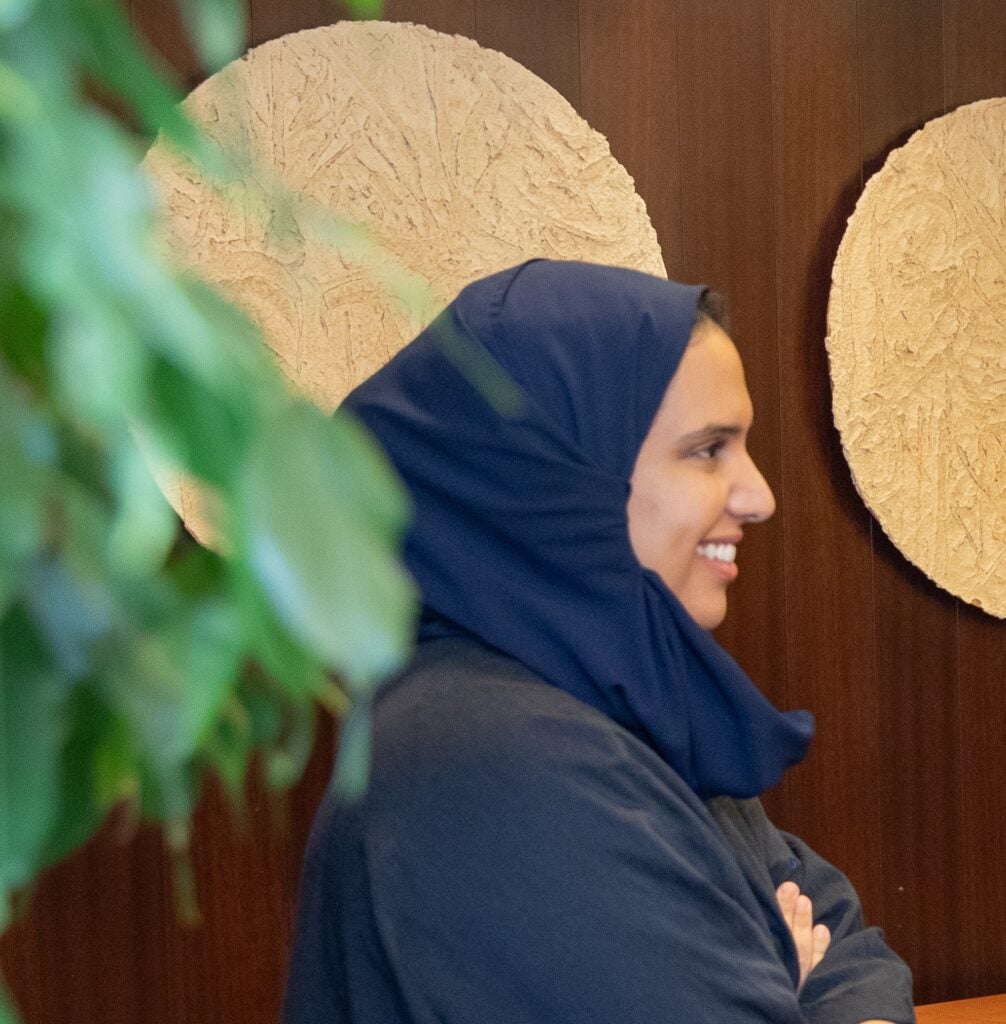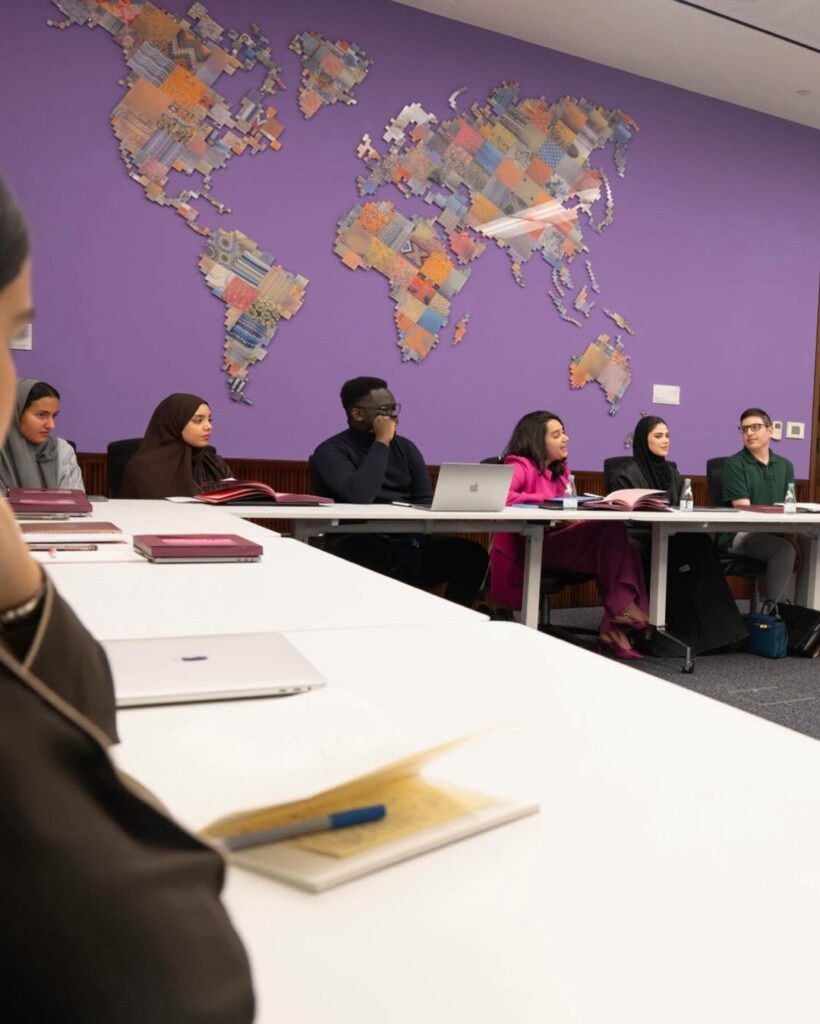Meet the Qatari Professor Teaching Qatar’s Voice to the World

It’s mid-afternoon at Georgetown University in Qatar (GU-Q), and sunlight filters through the high windows of a classroom filled with students. At the front of the room stands Professor Nouf Al-Thani (SFS’12), a GU-Q postdoctoral fellow commanding the space with ease. Her voice cuts through the chatter as she begins a discussion on Qatar’s cultural diplomacy. Around her, students listen intently, notebooks open, ready to capture the insights of a scholar whose work transcends the classroom.

In this moment, Professor Al-Thani is shaping how a new generation of students sees the world and their place in it. “I’ve taught four courses at GU-Q,” she says, naming them in chronological order: Cultural Practices and Sustainable Development in Qatar, Qatar’s Soft Power, and the ongoing Global Tapestry: Understanding the World through Collections. “Each course reflects my passion for exploring the role of culture, diplomacy, and identity, both globally and within Qatar.”
Qatari perspectives are deeply integrated into all of Professor Al-Thani’s courses. Her goal is to prepare the next generation of leaders, thinkers, and cultural ambassadors who will carry Qatar’s voice forward. “As a Qatari faculty member, I see my role as a bridge between local experiences and global academic discourse,” she says. “My background and experience allow me to offer a unique perspective on Qatar’s evolving role in the world.”
Her courses began with an exploration of Qatar’s cultural roots and how it leverages its cultural assets for sustainable growth, balancing tradition with rapid modernization. From there, the courses have examined how these elements shape the country’s influence and presence on the global stage.
For Professor Al-Thani, this passion for connecting culture with diplomacy began years earlier, when she joined Qatar Museums. Inspired by her father’s poetry and guided by the mentorship of Her Excellency Sheikha Al Mayassa bint Hamad Al-Thani, Professor Al-Thani learned how art, heritage, and national identity could be woven into the fabric of a country’s global persona. “I am deeply grateful for Her Excellency’s continuous support and mentorship throughout my career,” Professor Al-Thani reflects. “Her leadership has been instrumental in my growth.”
She received her J.D. from Hamad Bin Khalifa University and holds an M.A. in Museum and Gallery Practice from University College London in Qatar. With a decade of experience in the cultural sector, she now serves as Deputy Director of Learning and Outreach at Lusail Museum while also teaching at GU-Q. In both roles, she bridges academic theory with real-world initiatives, offering her students a unique window into how Qatar is positioning itself on the global stage—whether through international art exhibitions or major sporting events.
She recalls moments when her students, some of whom are international, experience an “aha” moment, realizing the power a nation’s cultural heritage holds. Through her courses, they come to appreciate how Qatar, though small, represents something much larger on the global stage, a vision that inspires other nations.
In Qatar’s Soft Power, for example, Professor Al-Thani guides her students through how the country uses sports, museums, and the arts—ranging from the FIFA World Cup to the Museum of Islamic Art—to build global ties. “The course highlights Qatar’s cultural diplomacy and influence,” she explains.

Professor Al-Thani’s teaching style is interactive, blending real-world examples, guest speakers, and site visits. When she discusses the ethical dilemmas of art collections in Global Tapestry, students visit museums, speak to curators, and see firsthand how these discussions play out in real life. “Repatriation and post-colonial narratives are key themes,” she notes.
Teaching at GU-Q has been deeply fulfilling for Professor Al-Thani, who finds the intellectual and personal growth of her students the most rewarding part of her work. She credits colleagues like Professor Karine Walther and Dean Safwan Masri for supporting her teaching journey and providing opportunities for local representation at the university.
Looking ahead, Professor Al-Thani is eager to expand her work both in the classroom and beyond. “I aim to broaden these courses with more comparative case studies and interdisciplinary projects,” she says. “I also hope to offer more hands-on learning opportunities for our students through our network of local museums.”
As she wraps up another lecture, Professor Al-Thani glances around the room, observing her students as they begin to pack their bags. The quiet hum of closing notebooks and the shuffle of papers fills the air, but what lingers most is the deeper understanding her students will leave with: they, too, are part of Qatar’s story—one that is still being written.